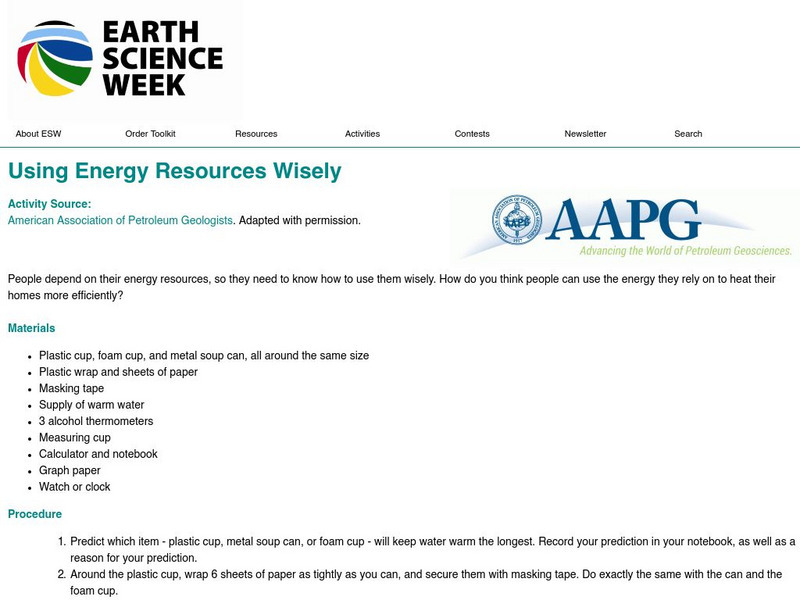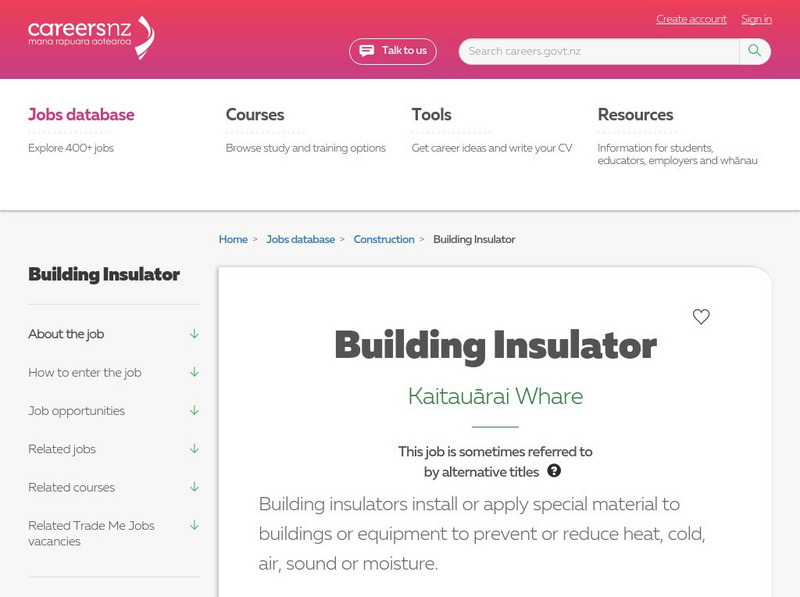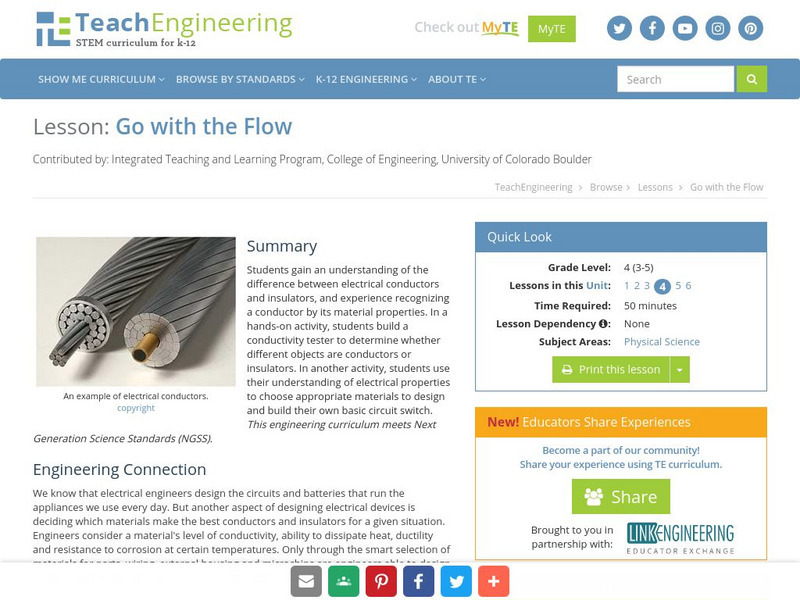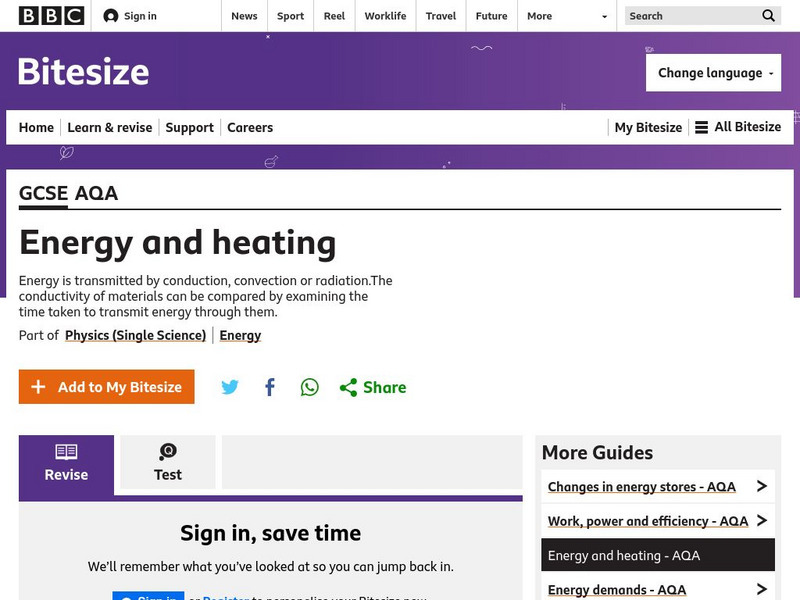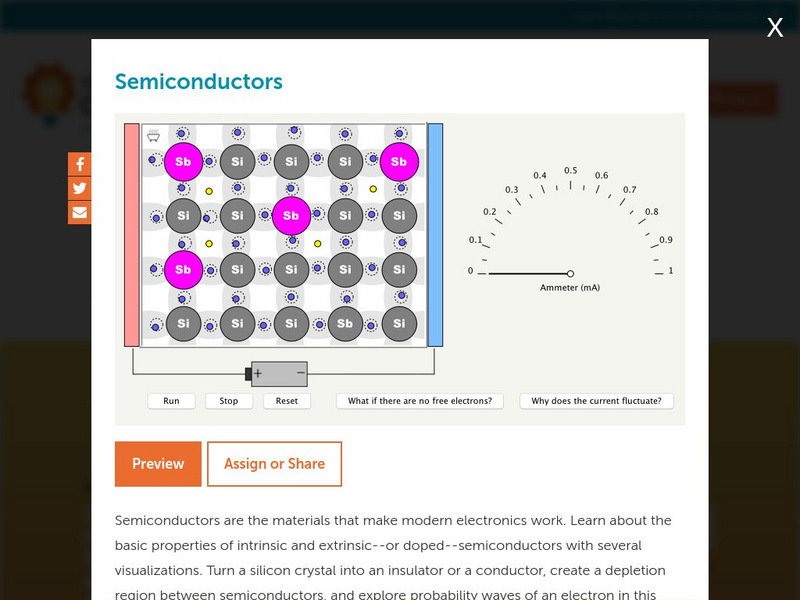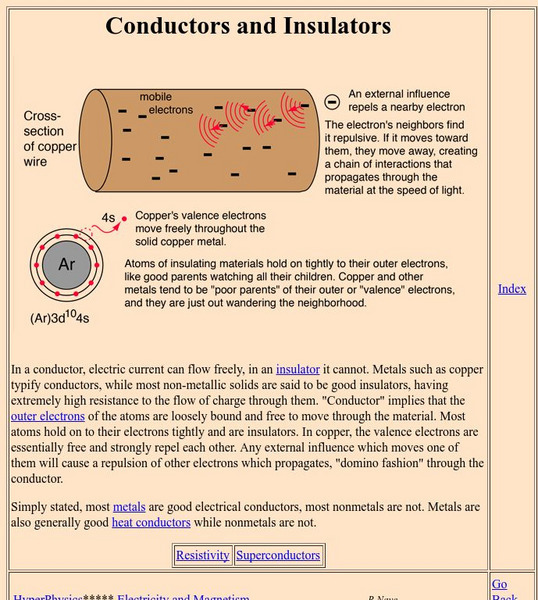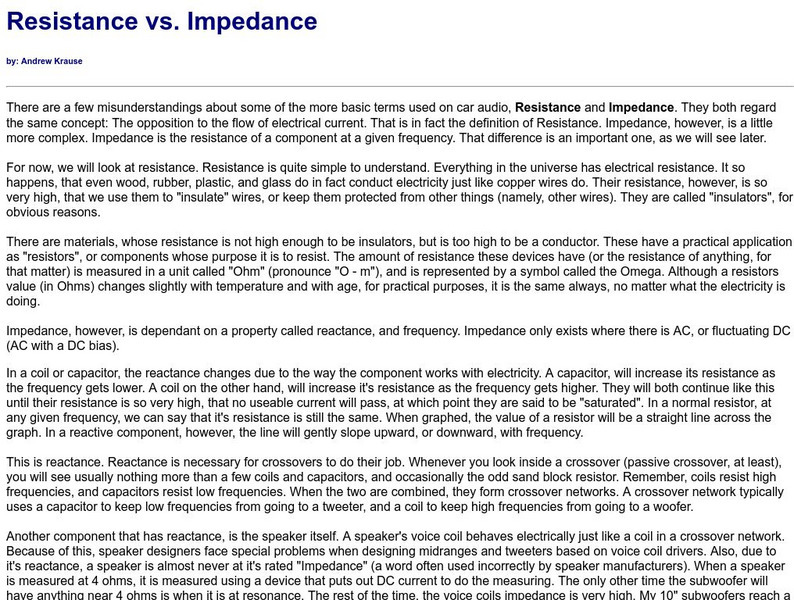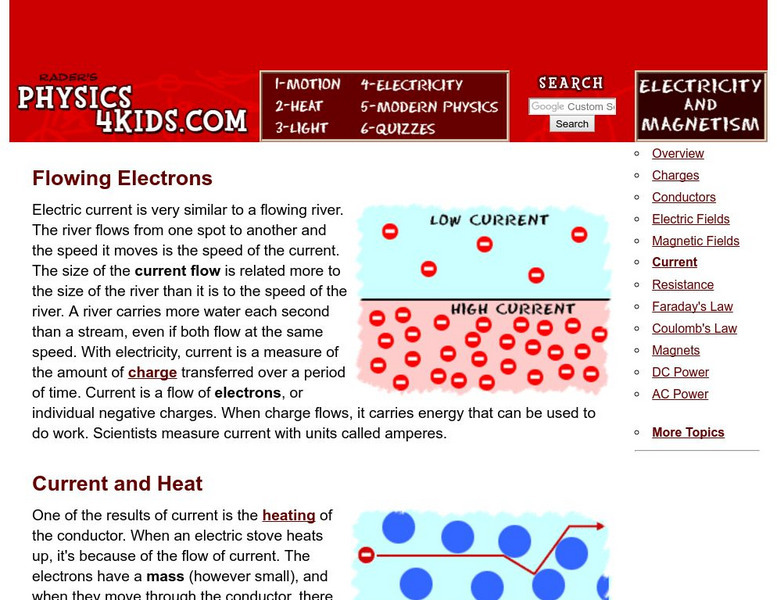Hi, what do you want to do?
American Geosciences Institute
American Geosciences Institute: Earth Science Week: Using Energy Resources Wisely
Students test which type of material retains heat the longest.
Careers New Zealand
Careers Nz: Building Insulator
This site contains information on becoming a building insulator in New Zealand. While some of the information is specific to New Zealand, most of it is uniform to the career. Includes job description, tasks and duties, personal...
TeachEngineering
Teach Engineering: Go With the Flow
Students gain an understanding of the difference between electrical conductors and insulators, and experience recognizing a conductor by its material properties. In a hands-on activity, students build a conductivity tester to determine...
TeachEngineering
Teach Engineering: How Hot Is It?
Students learn about the nature of thermal energy, temperature and how materials store thermal energy. They discuss the difference between conduction, convection and radiation of thermal energy, and complete activities in which they...
Physics Classroom
The Physics Classroom: Inducing a Positive Charge on a Sphere
This tutorial from the Glenbrook South High School provides an animation depicting the induction charging of a single sphere by the process of induction. The movement of electrons is shown. The animation is accompanied by explanations of...
Physics Classroom
The Physics Classroom: Charging a Two Sphere System by Induction
From the Multimedia Physics Studios. An animation depicting the induction charging of a double sphere system by the process of induction. The movement of electrons between spheres and between the ground and sphere is shown. The animation...
BBC
Bbc Schools: Ks2 Bitesize: Science: Materials: Heat
A short, illustrated tutorial about how heat energy moves. After reading the material, take a quick quiz to check for understanding.
Physics Classroom
The Physics Classroom: Thermal Physics: Rates of Heat Transfer
Through illustrated examples and interactive examples, students investigate the topic of the rate of heat transfer.
Maryland Science Center
Maryland Science Center: Build a Conductivity Tester [Pdf]
Instructions on how to build an instrument that can be used to test which materials are conductors and which are insulators, in order to bridge a gap in an electrical circuit.
eSchool Today
E School Today: Electricity
Explore current electricity and different types of electric circuits.
BBC
Bbc: Gcse Bitesize: Energy and Heating
Energy is transmitted by conduction, convection or radiation.The conductivity of materials can be compared by examining the time taken to transmit energy through them. This lesson explains how conduction works and provides a link to a test.
ArtsNow
Arts Now Learning: Using Dance to Explore Electricity [Pdf]
After analyzing examples of conductors and insulators, 5th graders will work in small groups to craft a dance that depicts an electrical current and how it is affected by a conductor or insulator. Students will present their dances to...
Project Britain
Primary Homework Help: Electricity Questions
Brush up on electricity facts before taking this interactive quiz. Students can get immediate feedback by checking the answers after each question.
OpenSciEd
Open Sci Ed: Unit 6.2 Thermal Energy
This unit on thermal energy transfer begins with students testing whether a new plastic cup sold by a store keeps a drink colder for longer compared to the regular plastic cup that comes free with the drink.
CK-12 Foundation
Ck 12: Fourth Grade Science: Physical Science: Electric Current
[Free Registration/Login may be required to access all resource tools.] Defines electric current and relates electric current to different materials (insulators and conductors).
Concord Consortium
Concord Consortium: Semiconductors
Semiconductors are the materials that make modern electronics work. Learn about the basic properties of intrinsic and extrinsic- or doped- semiconductors with several visualizations. Turn a silicon crystal into an insulator or a...
PBS
Pbs Learning Media: Balloon Charging Lab
Explore the behavior of electrons in conductors and insulators in this interactive simulation.
Georgia State University
Georgia State University: Hyper Physics: Conductors and Insulators
This site from Georgia State University provides information on the distinction between conductors and insulators. Factors contributing to the insulating ability of materials are discussed.
Hunkins Experiments
Hunkin's Experiments: Electric Shocks!!
Hunkin's Experiments is a group of simple cartoon illustrations of scientific principles. Some would work well in the classroom, but others have little value beyond entertaining students. All of the projects are easy to do. These...
Wikimedia
Wikipedia: Electrical Conductivity
This is the encyclopedic entry for electrical conductivity from Wikipedia.com. The site provides a brief introduction to the topic but provides numerous links to information relative to the topic.
Other
Team Rocs: Resistance vs. Impedance
Compares resistance and impeadance using the example of car audio.
Ducksters
Ducksters: Kids Science: Electricity 102
Kid's learn more about the science of electricity. How its measured and generated.
Physics Classroom
The Physics Classroom: Electrophorus by Induction
This tutorial offers an animation depicting the induction charging of an electrophorus plate by the process of induction. Animation depicts the movement of electrons between plat and ground. The animation is accompanied by explanations...
Physics4kids
Physics4 Kids: Electricity and Magnetism: Current
Explains electric current, how it produces heat, and the difference between a direct current and an alternating current.





